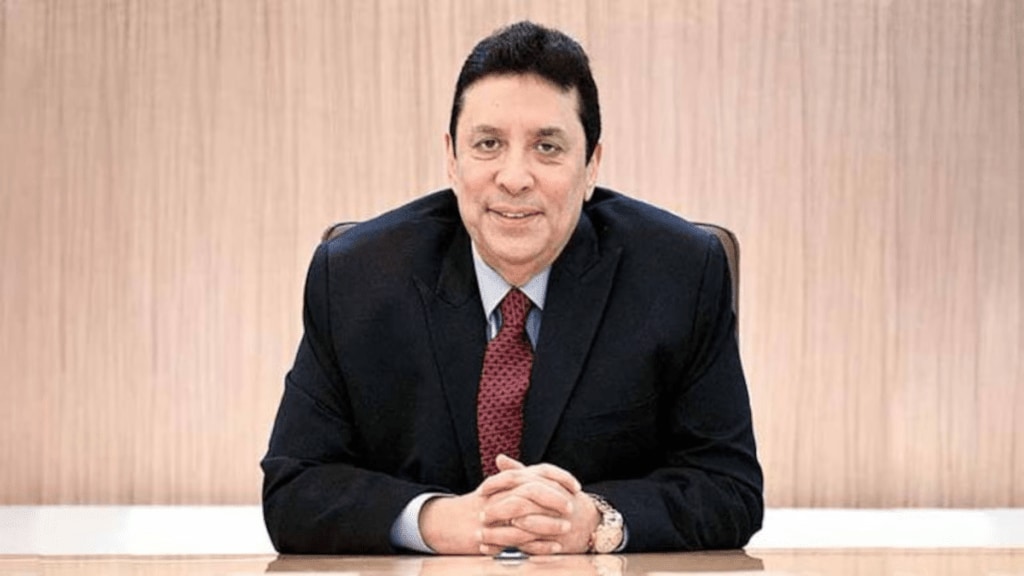Is Keki Mistry an occultist or an astute crystal-ball-gazer? Just four days ahead of the budget, Keki Mistry, the Indian financial sector veteran, speaking at Financial Express Modern BFSI Summit in Mumbai looked at six areas where the budget could deliver and prove fruitful for the economy and lo and behold, it is these very six areas the finance minister had much to talk about in her budget speech.
“I think the budget continues to focus on the six principles that I mentioned at the FE summit. One is about growth. There are lot of measures in the budget to indicate that the growth trajectory will continue. One of them being the continued government investment in infrastructure with Rs 11 odd lakh crore or 3.4 per cent of GDP apart from many other measures in the budget which would promote growth.” The second aspect, he says, relates to the employment generation that I spoke about earlier. “Here, the budget has announced a slew of measures on employment generation and skilling, including companies having to take up interns and apprentices in addition to boost for sector that create jobs like housing and infrastructure, especially housing which gets a lot of boost.”
Finance Minister Nirmala Sitharaman says under the PM Awas Yojana Urban 2.0, housing needs of 1 crore urban poor and middle-class families will be addressed with an investment of ₹ 10 lakh crore. This will include the central assistance of ₹ 2.2 lakh crore in the next 5 years. A provision of interest subsidy to facilitate loans at affordable rates is also envisaged. In addition to these, there will be enabling policies and regulations for efficient and transparent rental housing markets with enhanced availability will also be put in place.
The third focus area he had referred to at the Financial Express BFSI summit was on the rural sector. “The budget has come up with number of measures for the rural economy – productivity for agriculture among other measures to boost the rural economy. The fourth area we spoke about at the summit was about manufacturing and there is enough and more in the budget on promoting manufacturing.”
The fifth area that was discussed was about consumption and here too, Mistry finds, “the budget announcements largely aimed at leaving more money in the hands of consumers. For example, the tax benefits for the salaried employees in addition to spending by the government which is expected to create more jobs.”
Finally, there is the aspect of fiscal discipline and here too the government seems quite committed, feels Mistry. “The fiscal deficit, which two years ago was about 5.5 per cent, which very pleasantly in the interim budget was brought down to 5.1 per cent and is now 4.9 per cent and hopefully touching 4.5 per cent next year. This only means that the government’s borrowing programme will be relatively low implying lower reliance on deficit financing, which otherwise could only add to inflationary pressures.”
However, among all the measures, Mistry, who wears a hat frothing with many feathers, including that of the non-executive director at the HDFC Bank feels, the most significant is the focus on employment generation. “Given that India is a young country with two-thirds of the population below the age of 35 with many passing out of colleges and ready to take up jobs. Therefore, this was crucial not just to create employment but also to result in income generation.” This, in turn is expected to trigger a virtuous cycle of demand and consumption-led growth and production resulting in opening up more job opportunities. Keki Mistry feels the measures announced in the budget were inline with the figures put out in the economic survey that India needs to create 78.5 lakh new jobs every year.
All in all, he calls is it a very good budget though there are aspects that could be debated upon. For instance, on capital gains. One area where Mistry feels need for perhaps a re-think and it is around the treatment of buy-back tax. If it is treated as a capital gain then the individual will have to pay a lower tax than having to shell out a higher tax now since it is treated as a dividend income taxed at the hands of the individual and therefore a lower incentive to surrender a share in a buyback to a company, making the entire buyback exercise futile. The finance minister announced that to deepen the tax base, for reasons of equity, tax income received on buy back of shares in the hands of the recipient, which Mistry welcomes as the right thing to do but it is only need for greater clarity on the treatment of the taxation on this.


